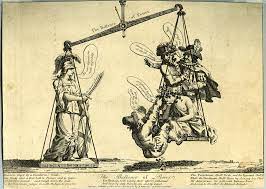The Concepts of Universal Monarchy and Balance of Power in Charles Davenant’s An Essay Upon The Ballance of Power (1701)
DOI:
https://doi.org/10.15170/SPMNNV.2019.10.13Keywords:
English Political Thought, Political Pamphlet, Balance of Power, Universal M, Charles Davenant, Peace of Utrecht, Conceptual HistoryAbstract
In the 17th century – especially in the period after the Peace of Westphalia (1648) – more and more treatises were published about the European balance of power, which clearly appeared against the concept of universal monarchy (monarchia universalis) by this time. The balance of power principle became a prominent element of 18th-century state politics and political journalism, as well as one of the key concepts of the emerging theory of interstate relations. The term became part of the official language of diplomacy with the Peace of Utrecht (1713), becoming part not only of political thought, but also of the official political practice, and developed into one of the fundamental milestones of English foreign policy and political thought in the 18th centuries. This paper analyses the contemporary incorporation of the balance of power concept into English political thought with the analysis of English economist and political writér Charles Davenant’s (1656–1714) An Essay Upon The Ballance of Power (1701). The analysis is trying to point out how the principle of balance of power began to play an increasingly important role in European great power politics as well as in English domestic and foreign policy in the decades before the Peace of Utrecht (1713), and how Charles Davenant’s political pamphlet can fit in this context.


